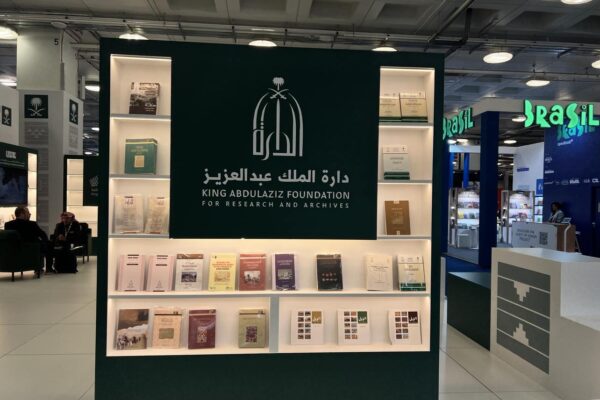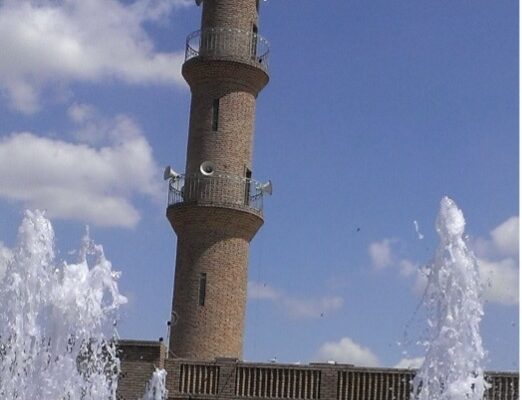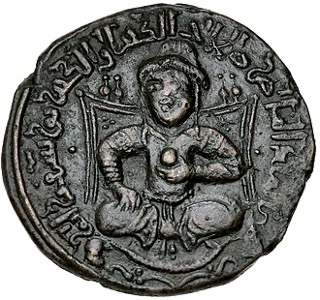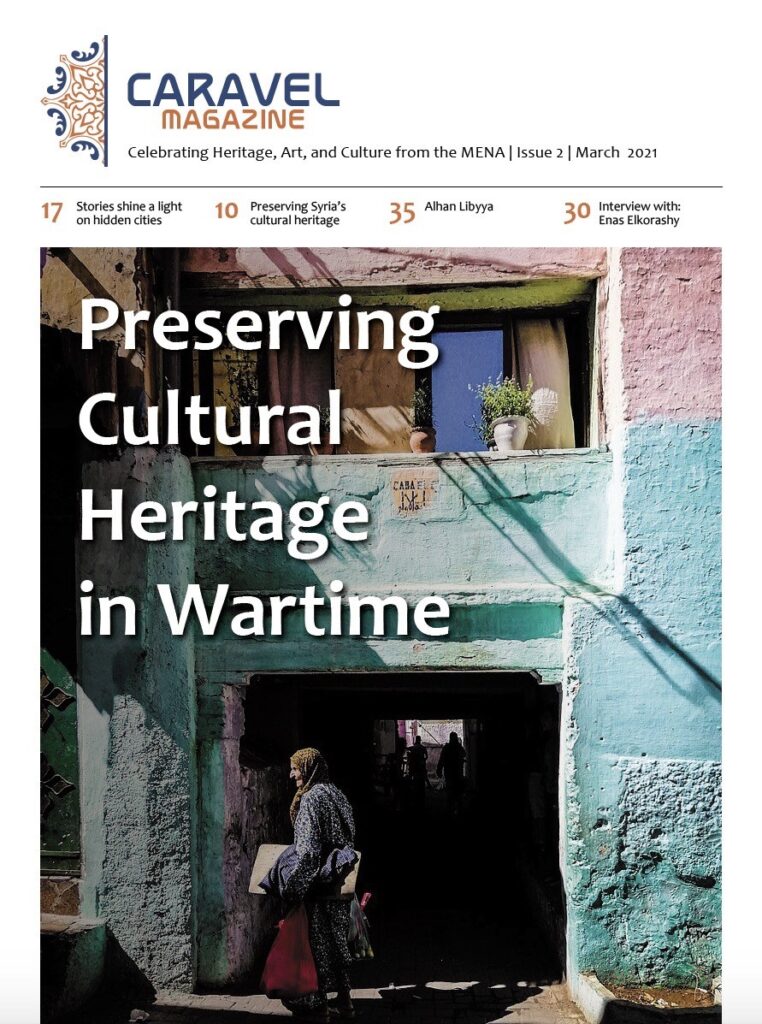By Claudia Ferrandiz and Nil Montilla
He wears a jellabiya and a tarboosh or fez on his head, while he holds a stick. With deep and melodious voice, Bassam Dawood tells legends, and stories about love, knights and heroes to entertain and educate.
Telling folk tales was one of the most popular professions in Syria, but over the past years, the storytellers have vanished from Syria with the emergence of new technology and also the death of the last Hakawati, four years ago. Yet, the actor and director Bassam Dawood found his way to a new career as a Hakawati (which in Arabic means “teller of tales” or “storyteller”) and fights to keep this ancient tradition alive.
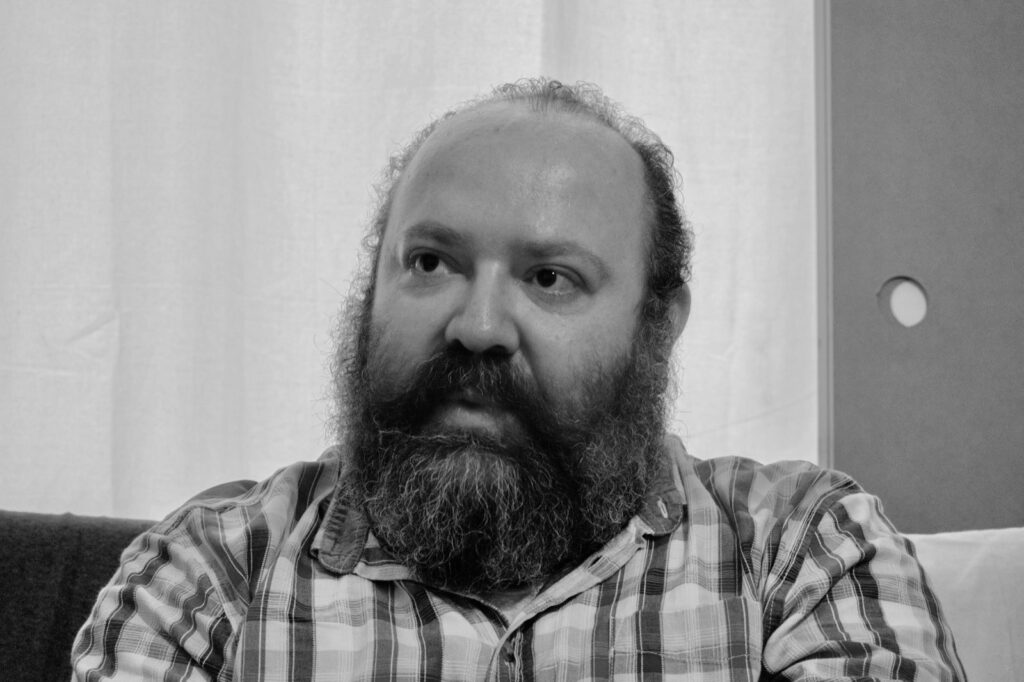
This centenary tradition consists of telling popular stories in public places such as cafes. Its origins can be traced back to several Middle Eastern countries, such as Morocco, Turkey, Syria, and Lebanon.
No one exactly knows how the tradition emerged, but, according to Dawood, it came from the rural community. People were in need of leisure activities after their long shifts in the land and, as a result, someone had to liven up the evenings with stories and songs. Storytellers started to go from door to door until they reached the city, where the practice settled, “Every Thursday evening the Hakawati tells stories in a poetic and dramatic way, tempering his voice to interact with the public.”
Now, in the modern world, it seems this old tradition is dying. For this reason, Dawood tries to preserve it. He wants to promote it among all Syrians, especially children who are now living abroad and are not familiar with this culture.
He thinks that “everyone must know” the art of Hakawati, as Syria goes beyond war and cuisine.
Dawood became a Hakawati within the Syrian revolution. “After 2011, I felt that the media weren’t interested in the human side of the Syrian revolution and the stories of ordinary people. Instead, they focused on politics and war,” says Dawood. “For this reason, I became a Hakawati. There are many stories that need to be documented because the person that comes to power in Syria in the future might try to remove them all.”
Dawood used to perform in a modern way in Syria. He wore casual clothes and he wasn’t as thorough with language and rhymes as he’s now. When he realised that his beautiful art of storytelling was disappearing, he decided to perform it putting on traditional clothes and using classical Arabic.
The theatre life
Dawood graduated from the High Institute of Dramatic Arts in Damascus and became a well-known actor and director in Syria.
He loved the theatre although freedom of expression was heavily restricted, thus his plays couldn’t be performed without the approval of the authorities. First, they had to check the script, and, after that, the piece had to be performed in front of a member of the Ministry of Culture. The regime’s aim was to prevent certain topics from reaching the public.
However, this censorship underwent a radical change after the revolution and during the war. Performing became harder as days went by, and Dawood decided to get involved in the political uprising.
The storyteller didn’t only help those in need but also worked on audiovisual projects that spoke about the fight against the regime through social media platforms.
He hid his identity, changed his voice, wore a mask and used a fake name, fearing being arrested.
In October 2012, he launched an online radio station called Souriali.net, with a group of friends. The channel was blocked and the only way to access it was through a VPN connection. However, it allowed them to oppose the government. Dawood was responsible for the theatre section, so he used this space to broadcast his stories.
Exile
Dawood fled Syria in November 2013, fearing for his safety, and now, he lives in Berlin, where things haven’t been easy. He’s not fluent in German, so his chances of working are limited. Although several people have tried to hire him because of his status as a refugee, he didn’t accept that. “I always say: come see my art, not a refugee doing art.”
The radio station that he was working with is no longer broadcasting. But the actor has been working on new projects. He teaches the art of storytelling in different workshops and gives the participants skills that help them to express their feelings. By practicing, that has turned into therapy for both the participants and himself.
Dawood’s priority is to save the endangered traditional storytellers, as well as to give voice to people who fought the Assad regime and suffered during the war. For all of them, Dawood says, “I must recollect these stories so that they don’t die, so that in the future it’s known what really happened in Syria.”

